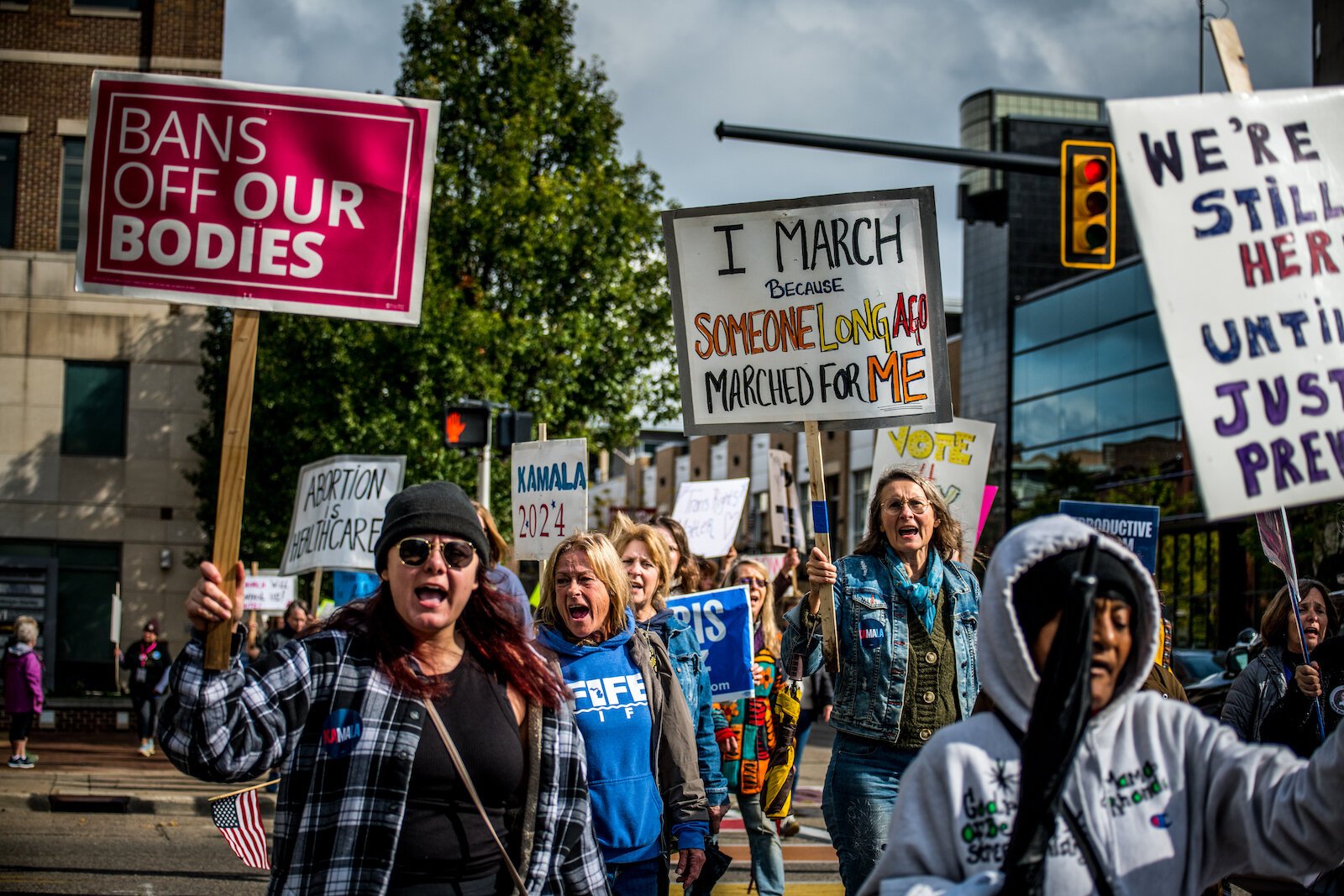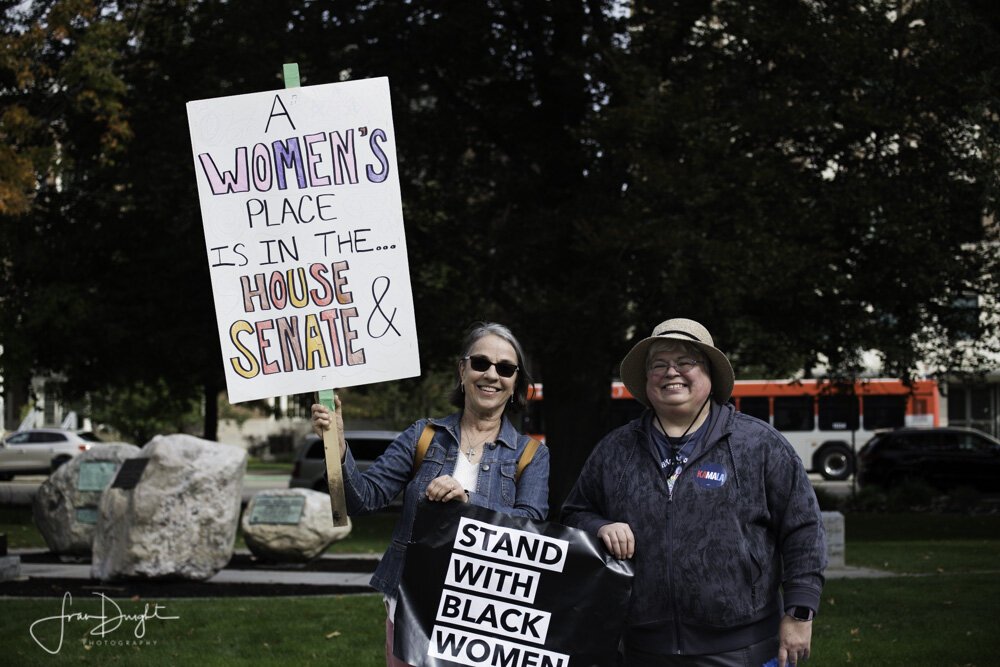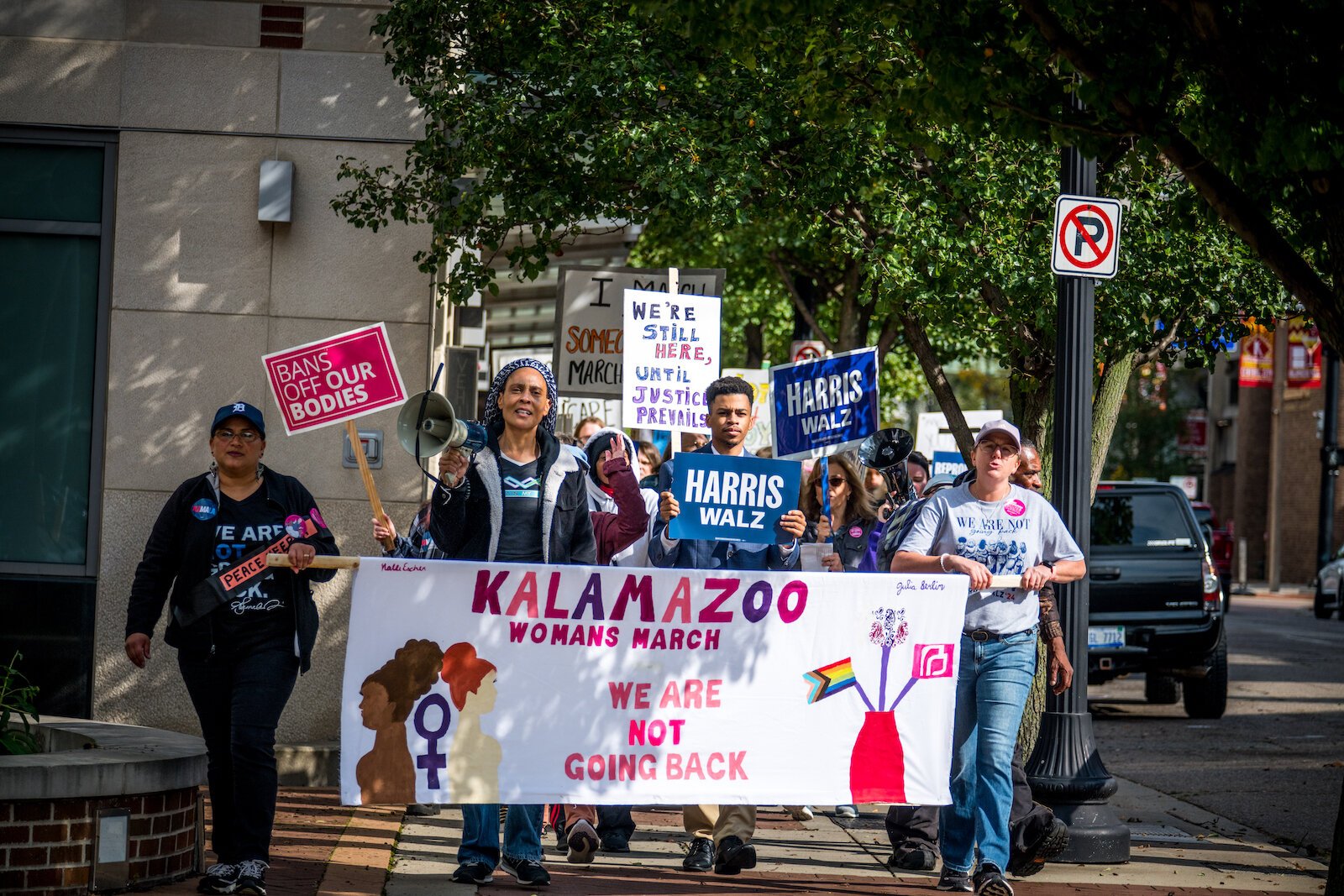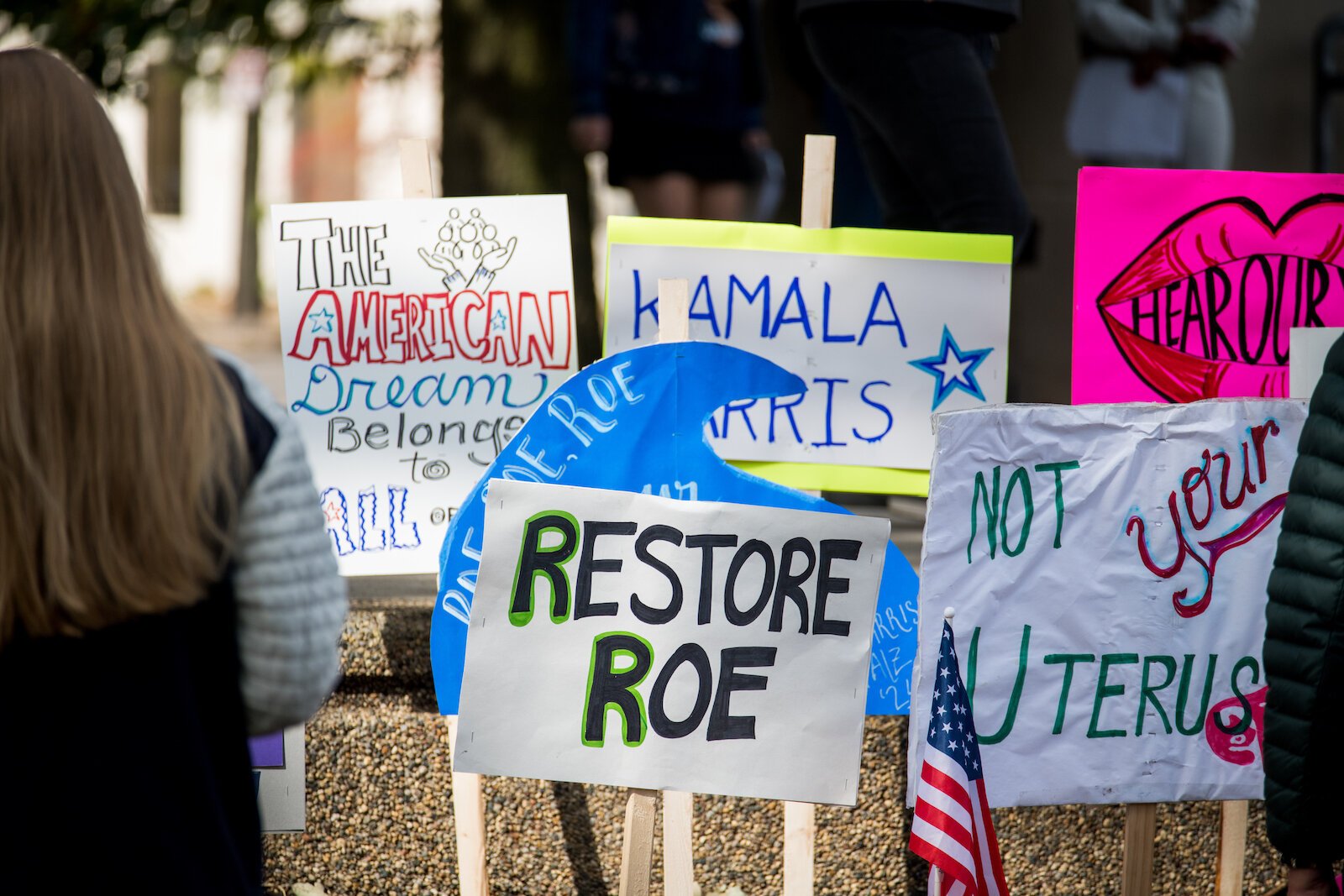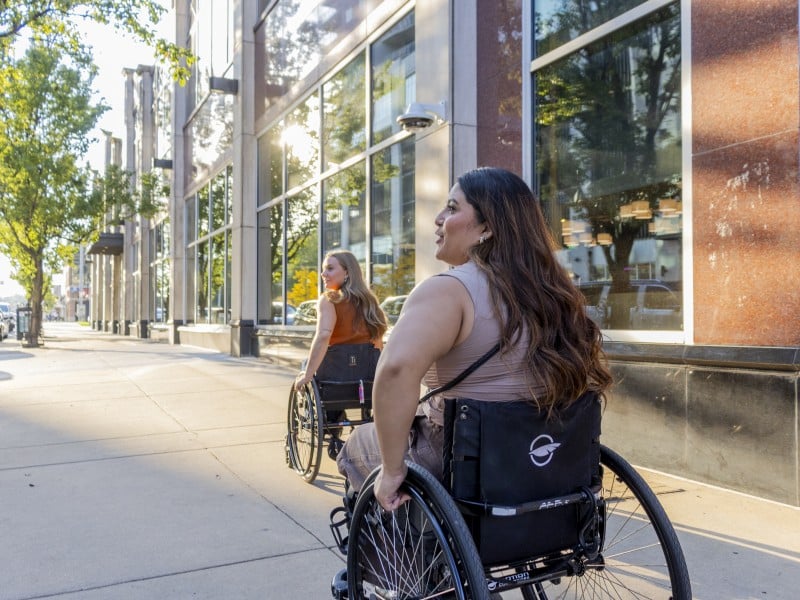
Voices of Youth: ACLU, YWCA Kalamazoo sue Michigan over Medicaid’s abortion coverage ban
ACLU Kalamazoo and YWCA Kalamazoo are bringing a suit against the State of Michigan because of a ban on funding abortion care for Medicaid recipients.
Editor’s Note: This story was reported by Krithvi Rayarupu as part of a Michigan Adolescent Sexual Health Organization series. The Voices of Youth program is a collaboration between Southwest Michigan Second Wave, and KYD Network in partnership with the YMCA of Greater Kalamazoo, funded by the Stryker Johnston Foundation. The VOY mentor for this project was Caroline Bissonette.
KALAMAZOO, MI — The American Civil Liberties Union (ACLU) of Michigan has partnered with Goodwin Procter, a multinational law firm, on behalf of YWCA Kalamazoo to sue the state of Michigan and challenge its ban on abortion care in Medicaid coverage.
The ACLU of Michigan is arguing that refusing to provide Medicaid coverage for abortions is unconstitutional because it denies necessary healthcare to low-income individuals. The ACLU argues that this ban discriminates against Medicaid recipients by burdening and infringing on their ability to access abortion care due to a lack of funds.
According to the Guttmacher Institute, an NGO that researches and analyzes sexual and reproductive health policy, Michigan is considered “very protective” of abortion access. This past summer, Michigan removed its mandatory 24-hour waiting period, which required individuals to wait at least 24 hours after requesting an abortion before receiving one.
Michigan’s protection of reproductive rights
As of October 30, 2024, the state is also one of four to have explicit protections for abortion in its constitution, thanks to a 2022 amendment that protects the individual right for one to make decisions about their pregnancy and abortion. Michigan is one of nine states with no gestational ban, allowing individuals to obtain an abortion at any point during their pregnancy.
The state also has shield laws for abortion providers, protecting them from disclosing confidential information. People entering abortion clinics in Michigan are also shielded from harassment or violence through the barring of protestors outside clinics or the establishment of “bubble zones” that are meant to create physical distance between protestors and patients.
Michigan has engaged in policy changes to enshrine abortion rights in the state, including repealing an old abortion ban from 1931 which would have gone into effect automatically once Roe vs. Wade was repealed, getting rid of waiting periods, as well as adding a constitutional amendment in 2022 which protects abortion rights.
Restrictions to access still exist
Despite Michigan’s relatively protective abortion laws, restrictions on abortion access are still present. Anyone under the age of 18 needs permission from a parent or guardian to get an abortion. If they are unable or unwilling to involve their parents, they can request permission from a judge instead, by requesting what’s known as a judicial bypass. Michigan allows the use of private insurance to cover abortion care, but Michigan Medicaid is banned from providing compensation for abortion services except in cases of rape, incest, or if the mother’s health is in danger.
Michigan Medicaid is state-subsidized health insurance, meaning the Michigan state government covers insurance for certain low-income individuals deemed Medicaid-eligible. Medicaid covers a variety of services including doctor visits, mental health services, dental care, surgeries, and X-rays. This subsidized health insurance is widely used across Michigan, with 24 percent of women ages 15 to 49 currently enrolled in Medicaid, which is roughly 530,000 women of reproductive age, according to data compiled by the Guttmacher Institute.
Michigan Medicaid also includes “Plan First,” a limited health coverage program that covers family planning services such as STI testing and treatment, birth control, and pregnancy testing and counseling but does not include abortion care.
On June 27, 2024, the ACLU of Michigan released a statement that they were suing the State of Michigan on behalf of the Young Women’s Christian Association (YWCA) of Kalamazoo on the basis that denying coverage for abortions under Medicaid is unconstitutional because it discriminates against Medicaid-eligible patients and violates their right to privacy and ability to make their own medical decisions.
The lawsuit states that the coverage ban violates an amendment that was added to the Michigan Constitution in 2022 that “guarantees all Michiganders the fundamental right to reproductive freedom and prohibits any governmental action that denies, burdens, infringes, or discriminates against that right unless justified by a narrowly and specifically defined compelling state interest.”
Those who oppose the ban argue that it is detrimental to low-income, Medicaid-eligible individuals trying to gain access to healthcare they are entitled to. By definition, to be Medicaid-eligible, the State of Michigan requires that individuals earn less than $18,000 for a single person or $37,000 for a family of four in 2023, meaning these patients “must scrape together their extraordinarily limited funds or rely on charitable assistance to receive abortion care” according to the lawsuit.
This lack of coverage often coerces pregnant individuals to carry their pregnancies out to term because they cannot afford the cost of an abortion, which is meant to be eliminated by the previous 2022 amendment. In the complaint filed in the lawsuit the YWCA argues that this ban on abortion coverage forces organizations like the YWCA to become “a funder of last resort for some of the most vulnerable pregnant persons,” forcing them to divert resources to “subsidize reproductive health care that would be funded by Medicaid absent the discriminatory ban.”
The YWCA’s largest expenditure is its Reproductive Health Fund, in which 88% of clients who used the fund from 2022 to 2023 self-reported that they were on Medicaid. With the ban deemed unconstitutional, the YWCA would be able to allocate its resources in other areas, more comprehensively helping low-income Michiganders.
After the initial statement on June 27, Assistant Attorney General Eric Restuccia intervened on behalf of the people of Michigan to keep the coverage ban in place. Restuccia has filed a motion to dismiss the lawsuit, and the ACLU of Michigan has filed a response. The motion will be heard in court on January 23, 2025.
ACLU finds Medicaid ban restrictive

According to Bonsitu Kitaba, the Deputy Legal Director at the ACLU of Michigan, “The Medicaid ban on abortion care coverage is one of the last abortion restrictions still in state law. It needs to go so that all Michiganders get to enjoy the same constitutional rights that they supported and passed in 2022.”
Kitaba says that the ACLU of Michigan hopes that the court will agree with their arguments that “these laws are unconstitutional under Michigan’s new reproductive freedom amendment.” If that happens, she says low-income individuals will be able to “enjoy the same constitutional protections as those with the means to pay for their care or those with private insurance.”
One Medicaid-insuree’s perspective
Second Wave Media spoke to a 32-year-old queer, trans, nonbinary individual living in southeast Michigan, who received an abortion in 2018 while uninsured. For privacy reasons, they have chosen to use a pseudonym and will be referred to as Sam in this article.
Shortly after Sam’s pregnancy, they were placed on Medicaid in Michigan. Although they were not on Medicaid during their pregnancy, Sam expressed that having insurance that covered their abortion would have made an already stressful experience much easier.
“There is already so much you’re trying to arrange. Like, I was trying to arrange transportation. It was an emotional experience for me.” Not to mention, like many, Sam says the conditions under which they got pregnant were “a little bit traumatizing,” and that having timely access to reproductive care would have eased that experience.
Looking back on their pregnancy, Sam remembers thinking, “I’m pregnant. This problem is here with me. If I don’t do anything about this, my body is — like — making a baby… I have to address this issue.” Getting pregnant and receiving an abortion are time-sensitive processes, which can make accessing this healthcare difficult, especially for the most vulnerable populations, says Sam.
Sam also emphasized that finances can be a major hurdle for individuals seeking an abortion. They say that worrying about finances, in addition to the physical aspects of pregnancy, makes the experience “so much more stressful.” Being stressed about money on top of dealing with the fast timeline of pregnancy is a struggle for many low-income individuals. “Finances are difficult to access in a timely manner for a lot of people, obviously. And so, for insurance to take care of that part makes so much sense.”
Still work to do
While the elimination of this coverage ban in Michigan would allow half a million women in the state to afford an abortion, reproductive freedom work in Michigan is far from over, many say. There are still barriers to accessing abortions, and Kitaba says the ACLU has plans to address them further.
“Young people still face this barrier because they are prohibited from accessing abortion care unless they obtain a parent’s consent. There are also other barriers for low-income individuals, families living in rural communities, and families trying to access fertility care,” she says. “There’s still a lot of work to do!”

